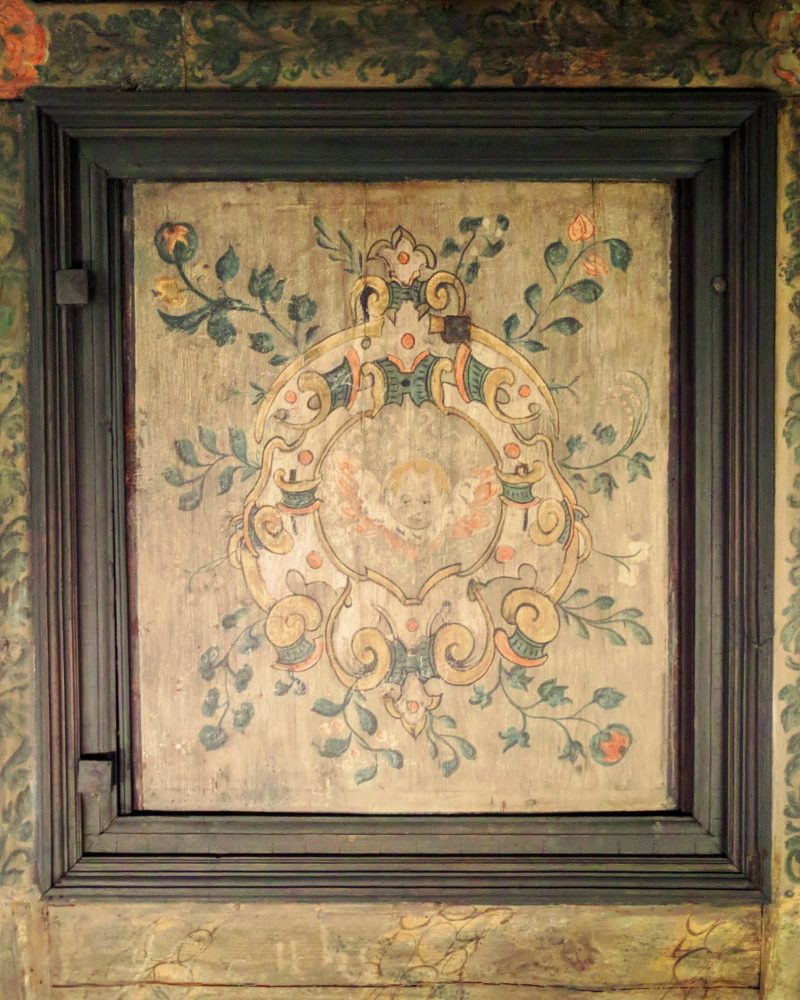She feels quivery, detached from everything familiar, even her own kitchen. The tea kettle screams violently, and Helen Sadler, a small-boned woman just a shade under eighty years old, stares at the stove hopelessly before remembering the next step.
Stop it, Helen. Concentrate.
Too late Helen realizes how easy it is to overfill her pretty little teacup—boiling water splashes indelicately all over the kitchen counter, splatters onto the floor. Still, she knows what to do next, and drops a tea bag into the colorless water the way an angler carefully places a line. Adds a touch of honey. Closes her eyes and waits for the tea to cool.
I’ll be as calm as a moonlit lake.
Reassured, Helen lifts the cup to her trusting lips and squeals in pain as the soft flesh of her mouth bubbles like hot butter. Steaming tea spills onto her wrist, pours down her arm, drips from her elbow like blood from a wound.
*
The first few days he was gone, Helen was rather collected, even relieved. The terse note had more or less come out of the blue: “I want to live alone for a while, love Marty.”
But now she understands. She changed the TV channel while he was out of the room one too many times, and she did invite the Marshall’s over to play cards without telling him. She will never do that again, and she’ll tell him so tonight. Soon, she knows, they’ll be back to normal; he will grouse about the weather or the leaves in the yard, or the neighbor’s Great Dane which, he maintains, is more of a farm animal than a dog and should be banned from the neighborhood.
Helen saw no need to tell the boys, either. One, a civil engineer in Sacramento, would get angry and loud. The other, a marine biologist in Jacksonville, would actually enjoy the little ambush life had arranged for his predictable parents, and that annoying fact was why Helen never told him anything at all.
*
The house where the boys grew up is a pearl-gray Cape Cod built in 1959. It’s still a pretty house, Marty thinks as he slowly walks to the door. Once again, he notices the things that need to be done—a shutter is crooked, there’s moss growing on the porch, and the Adirondack chairs are peeling. He wonders if the green paint that’s in the garage is any good.
One of his tennis shoes feels sloppy and loose. He looks down and sighs. It seems a long way to his feet, but he bends over and adjusts the Velcro, then rings the doorbell several times. Like a clown, or a nurse, or anyone searching for a sliver of hope, he thinks he is smiling as he holds his finger on the button for one endless note until finally the front door inches open. Evening light splits the dim interior of the living room and for a moment Helen seems an ethereal vision, a figment of his imagination, a goddess as a matter of fact.
But she seems more distressed than pleased to see him, and she’s blowing on her red knuckles. “I’m sorry, Marty. I didn’t hear the bell.”
“Am I late?” He follows her into the house, which, he fails to notice, is exactly as he left it—his other pair of sneakers and dirty socks are still at the end of the hallway, the hammer he’d left on the dining room table is still right there, along with a pile of unopened mail. “What’s the matter with your hand?”
“It’s nothing. A burn. I spilled hot water.” She shows him her bare arm and the stripe of hot red traveling from her wrist to the sharp tip of her elbow. “My lip, too. I burned my lip,” she adds. “It hurts.”
Marty slips out of his coat, puts his arm around her shoulders, and leads her into the kitchen like a child. Clean and uncluttered, it’s not a kitchen that has been worked very hard of late, exactly the opposite of his windowless kitchen at the Madison Suites, which is as dim and messy as a cave. Helen, he knows, would pale at the sight of his kitchen counter, the way it’s buried in styrofoam plates from the carryout–the way the sticky, honeyed teaspoons are attracting ants—how spent tea bags drain and dry and pile up like small dead mice.
Lately he finds himself tunneling through newspapers and plastic bags and dirty clothes. Smelly milk cartons seem to appear behind his back. Without Helen, the discards of daily life seem to multiply and overpower him. She would faint dead away if he told her that the green mold scabbing the cottage cheese in the refrigerator no longer seems so unappetizing.
“Vitamin E?”
“What did you say, Marty?
“Where is the vitamin E?
“Where do you think? On the vitamin shelf above the toaster.
“Best thing for a burn.”
“I know that.”
“Sit.”
Efficiently he bites a hole in the capsule and squeezes a jumbo drop onto his fingertip. With the intensity of a surgeon at work he applies the amber oil to Helen’s lower lip.
“Better?
Helen nods, watching as he bites open another capsule, then closes her eyes inhaling his boggy scent, and the aroma of the freshly brewed tea, and her own powdered body as he rubs the oil on her knuckles, between her bony fingers, onto the back of her hand and all the way up her arm.
“Remember when we went to Loon Lake, Marty? How the boys used to catch the frogs and fireflies?”
“Of course, I do. And after we put them to bed, we’d sit on the dock and watch the stars fall.” Marty massages Helen’s arm with meditative concentration.
“You’ve lost weight,” he says. “You’re getting bony. That wedding band is going right down the drain if you’re not careful.” He rotates the ring on her slippery finger. “Maybe you should take it off.” The words spilled out of his mouth like confetti; sometimes he doesn’t know what he’s thinking until his voice gives his disordered thoughts shape.
Helen twists her hand out of his.
“You want me to take off my wedding ring?”
“No. No! I don’t want you to take it off,” Marty protests. “I just don’t want you to lose it.”
Silent as glass, Helen stares at her husband. Outside, darkness has fallen and a nasty breeze disturbs the monster oak tree in the back yard, the tree they’d planted when they bought the house.
“That’s all I meant—is that not what I said?”
“You…you want a divorce,” Helen whispers. “That’s why you came over.” Her lips pulse like a hummingbird’s wings and tears slide down her cheeks in glittery ribbons. She stands to face him, to gaze directly in his eyes.
“Say something, Martin Sadler. Do you want a divorce?” He stares at her in speechless astonishment as she repeats it three times. Louder and louder and louder until…the slap across Marty’s creased face is weak but not futile, and his terrified expression is, for a brief moment, more satisfying than sex. Still, his baffled eyes and tortured expression intensify this particularly impressive misunderstanding—wailing in remorse and relief, Helen wipes her husband’s tears away.
She guides him to the stairs which they’ve managed to climb every night minus fifteen for fifty-three years. Side by side, seeking the solace of familiarity where naked, failing bodies are as inescapable as a lifetime of emotion, Helen and Marty Sadler sleep peacefully until morning, when they call to check in with the boys, who have, of course, certain problems of their own.
#
author bio:
 Ann Mohin is an award-winning novelist, short story writer, poet and playwright. Her novel, The Farm She Was, was a 1998 New York Times Notable Book and her play, adapted from that novel, was produced last summer at The Palace Theater in Hamilton, NY. Originally from Baltimore, she is also a retired sheep farmer who currently divides her time between upstate New York and Florida.
Ann Mohin is an award-winning novelist, short story writer, poet and playwright. Her novel, The Farm She Was, was a 1998 New York Times Notable Book and her play, adapted from that novel, was produced last summer at The Palace Theater in Hamilton, NY. Originally from Baltimore, she is also a retired sheep farmer who currently divides her time between upstate New York and Florida.
